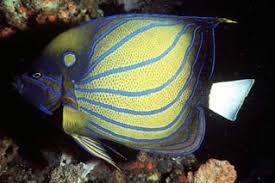The Legend of the Dragon Hidden in Tianchi Lake on Mount Changbai: A Tale of Mystery and Power

Tianchi Lake, or Heavenly Lake, located on Mount Changbai (also known as Changbai Shan), has long been a site of mystery and legend in both China and Korea. Nestled in the highlands of the border region between China and North Korea, this picturesque volcanic lake is surrounded by majestic peaks and thick forests, lending it an air of mysticism and intrigue. Yet, beyond its serene beauty, Tianchi Lake harbors an ancient and legendary secret: the tale of a dragon that is said to dwell in its depths. The story of the hidden dragon in Tianchi Lake is not only a captivating legend but also a powerful symbol of the region’s cultural heritage and the enduring connection between humanity and the forces of nature.
In this article, we will explore the fascinating story of the dragon that is believed to reside within the tranquil waters of Tianchi Lake on Mount Changbai. We will delve into the origins of the legend, the symbolism of the dragon, and the historical and cultural significance of this myth in both Chinese and Korean traditions. We will also look at the ways in which this legend continues to influence the region’s identity today.
1. The Origins of the Legend
The legend of the dragon hidden in Tianchi Lake has been passed down for centuries. This myth originates from ancient Chinese and Korean folklore, with some variations depending on the specific cultural context. The most prominent version of the story ties the dragon to the formation of Tianchi Lake itself, which was created after a massive volcanic eruption thousands of years ago. According to the legend, the eruption was so powerful that it shook the earth and created the deep, circular lake atop Mount Changbai.
In the myth, a mighty dragon, believed to be the guardian spirit of the mountain, had lived in the lake long before the eruption. It is said that this dragon was a powerful and benevolent creature that ensured the protection and prosperity of the region. When the eruption occurred, it was believed that the dragon became trapped in the lake’s deep waters, where it has remained ever since, hiding from the world.
As time passed, the dragon’s presence in the lake became more than just a story – it became a symbol of power, mystery, and divine protection. Locals believe that the dragon still resides in the lake, guarding its waters and keeping the land safe from harm. The sight of fog or mist rising from the lake is often attributed to the dragon’s presence, as it is believed that the creature causes the mist to swirl as it moves beneath the surface.
2. The Dragon’s Symbolism and Significance
In both Chinese and Korean culture, the dragon is a symbol of immense power, wisdom, and spiritual significance. Unlike the fearsome dragons of Western mythology, which are often portrayed as destructive and malevolent creatures, the dragons in East Asian folklore are revered as benevolent beings that bring prosperity and protection. The dragon is associated with water, rain, and the natural elements, making it a fitting guardian of a lake like Tianchi.
The dragon hidden in Tianchi Lake is often depicted as a powerful and wise creature, embodying the spiritual and physical forces of nature. It is seen as the protector of the land, the people, and the balance of the natural world. In Chinese mythology, the dragon is often linked to the emperor, symbolizing his connection to heaven and his ability to rule over the land with wisdom and justice. Similarly, in Korean culture, the dragon represents the king’s authority and the strength of the nation.
In the context of Tianchi Lake, the dragon is believed to maintain harmony between the elements and protect the land from natural disasters, such as floods, droughts, and earthquakes. The dragon’s presence is seen as a blessing, ensuring that the region remains prosperous and the natural world continues to thrive. The mist that rises from the lake, often seen as the dragon’s breath, is a reminder of the creature’s ongoing vigilance and power.
3. The Dragon and the Formation of Tianchi Lake
The connection between the dragon and the formation of Tianchi Lake is central to the legend. According to local folklore, the lake was created during a catastrophic volcanic eruption that occurred thousands of years ago. The eruption was so powerful that it reshaped the landscape, creating a massive crater at the top of Mount Changbai, which later filled with water to form the lake.
The dragon is said to have been the guardian of the mountain long before the eruption. When the eruption occurred, it trapped the dragon in the newly formed lake, where it remains hidden to this day. Some versions of the legend suggest that the dragon’s power was so great that it caused the eruption itself, as it stirred the elements in an effort to protect the mountain and its people. However, despite its immense power, the dragon was unable to escape the lake and has been hiding in its depths ever since.
The lake itself is often described as mysterious and otherworldly, with a deep blue color and a surface that can be eerily calm or stormy, depending on the weather and the time of day. The presence of mist or fog rising from the lake is often associated with the dragon’s movements, adding to the sense of mysticism that surrounds the area.
4. The Cultural Significance of the Dragon in Chinese and Korean Traditions
The story of the dragon hidden in Tianchi Lake holds deep cultural significance in both Chinese and Korean traditions. In China, the dragon is considered one of the most important symbols in the country’s mythology and history. The dragon is associated with imperial power, strength, and prosperity. It is often depicted in art, literature, and folklore as a powerful creature capable of controlling the elements and ensuring the well-being of the nation.
In the context of Tianchi Lake, the dragon is viewed as a protector of the region and a symbol of the power and majesty of Mount Changbai. The mountain itself is considered sacred in both Chinese and Korean traditions, and the dragon is seen as the guardian of the land. The legend of the dragon hidden in the lake reflects the belief in the interconnectedness of nature and the spiritual world, with the dragon serving as a bridge between the two realms.
In Korea, the dragon also plays an important role in national identity and mythology. The dragon is often depicted as a benevolent and powerful creature that ensures the prosperity of the nation and the well-being of its people. The legend of the dragon in Tianchi Lake is seen as a reflection of this belief, with the dragon serving as a guardian of the land and a symbol of the strength and unity of the Korean people.
5. The Mystery and Modern Fascination with Tianchi Lake
Today, Tianchi Lake remains one of the most popular tourist destinations in the region, attracting visitors from around the world who come to see the lake’s breathtaking beauty and to learn about its rich cultural history. The legend of the dragon hidden in the lake continues to capture the imagination of people, and many visitors come hoping to catch a glimpse of the mysterious creature.
The lake itself is an awe-inspiring sight, surrounded by towering peaks and lush forests that add to its sense of mysticism. The waters of Tianchi Lake are crystal clear, and the surrounding mountains create a sense of isolation and serenity. The fog that sometimes rises from the lake only adds to its otherworldly atmosphere, leading many to believe that the dragon is still present, lurking beneath the surface.
Scientists and researchers have also been fascinated by the lake’s geological history. Tianchi Lake is situated inside a volcanic crater, and its unique landscape has been studied extensively. However, the lake’s connection to the legend of the dragon has remained a significant part of the area’s cultural identity, and it continues to be an important symbol for local communities.
6. Conclusion: The Enduring Legacy of the Dragon in Tianchi Lake
The legend of the dragon hidden in Tianchi Lake on Mount Changbai is a captivating and enduring story that reflects the deep connection between nature, spirituality, and cultural identity in both China and Korea. The dragon, as a symbol of power, protection, and prosperity, embodies the reverence that the people of the region have for the natural world and the forces that shape it.
As a guardian of the lake and the surrounding land, the dragon remains a powerful and influential figure in local folklore. Its presence continues to inspire awe and fascination, and the story of the hidden dragon is an integral part of the cultural heritage of the region. The mist that rises from the lake, the serene beauty of the waters, and the powerful symbolism of the dragon all contribute to the mystique and allure of Tianchi Lake, making it a place of great cultural and spiritual significance.
The legend of the dragon in Tianchi Lake serves as a reminder of the mysteries that still exist in the natural world and the timeless connection between humanity and the forces of nature. Whether as a protector of the land, a symbol of prosperity, or a reminder of the power of the natural world, the dragon continues to be a vital part of the cultural identity of the region, ensuring that its legend will live on for generations to come.

